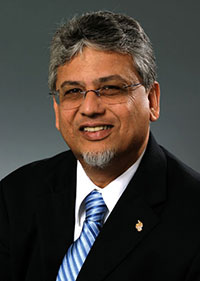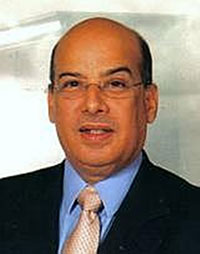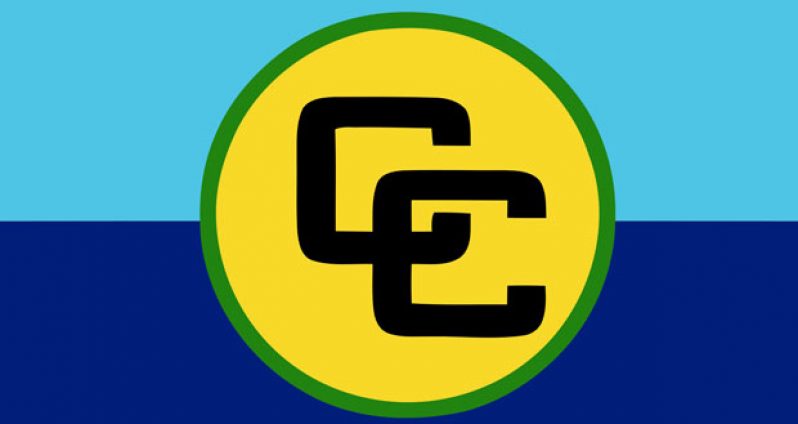Analysis by Rickey Singh
WHEN Caribbean Community Heads of Government meet with President Raoul Castro in Havana for the Fifth CARICOM/Cuba Summit on December 8, one outstanding non-agenda issue they have to resolve on the margins of their conference is reaching a consensus on the Community’s choice for a new Secretary General of the Commonwealth. Time is running out for this consensus.

Another important initiative could well be, within the framework of their official work agenda in Havana, the crafting of a message to President Barack Obama to express admiration for his principled stand in exercising constitutional-based executive authority for arresting the nightmare of deportation facing approximately five million undocumented immigrants – among them thousands of CARICOM-born citizens of the American diaspora.
It is to be expected that the communiqué on the fifth CARICOM/Cuba summit would itself reflect the comparatively positive recent developments surfacing in Washington/Havana relations. In particular, President Obama’s personal diplomatic outreach to President Castro’s government against the backdrop of his publicly expressed “admiration” for Cuba’s commitment to help battle the Ebola epidemic afflicting African nations.

A MORAL OBLIGATION
However, in relation to the consensual decision on the Community’s choice for the post of new Commonwealth Secretary General, this has been twice postponed: First, at last July’s annual CARICOM Summit in Antigua, and subsequently during the hurriedly arranged special meeting earlier this month in Port-of-Spain, hosted by Prime Minister Kamla Persad-Bissessar to discuss common approaches to combat the Ebola epidemic.
With just one year remaining, as of this month, before the scheduled November 2015 Commonwealth Heads of Government Conference in Malta, CARICOM has a moral obligation to identify a “consensual” candidate to facilitate campaigning for the post of Secretary General of the 53-member Commonwealth of nations.
The convention that has developed over the years is for the post of Secretary General – normally for a minimum two terms – to be rotated on a regional basis. The outgoing two-term Secretary General is India’s Kamalesh Sharma. And since neither European Commonwealth states, nor Canada—whose turn it really is – has to date shown an official interest in occupying the post once held by the renown Canadian, Secretary General Arnold Smith, focus keeps shifting between Africa – which also had its period, as well as the Pacific.
However, according to the current edition of ‘Africa Today’, reputedly an influential news magazine in Africa, a former Deputy Secretary General of the Commonwealth, Ms Masire of

Botswana, seems to have acquired some support for her bid as a candidate from SADC (Southern African Development Corporation)
But the magazine’s Editor-in-Chief, Kayode Soyinka, has reported on the growing interest in the Caribbean region having an opportunity for one of its nationals to again serve as Secretary General, as it would be a quarter century since Guyana-born Sir Shridath Ramphal departed after serving a unique three terms.
OF SIGNIFICANCE
Of significance is that, like the respected analyst of economic, social and political developments in Europe and the Caribbean, David Jessop, Director of the London-based Caribbean Council, the editor of ‘Africa Today’ also feels that continued “squabbling” among CARICOM member states could jeopardise this Region’s chance to win wider support for the prize of Commonwealth Secretary General at the November 2015 Commonwealth Heads of Government Conference scheduled for Malta.
Currently, there are a trio of potential candidates from CARICOM for the post of Commonwealth Secretary General with Antigua and Barbuda’s former long serving diplomat in Britain, Sir Ronald Sanders as the current front-runner with at least nine of a dozen eligible votes among the English-speaking independent states since Haiti and Suriname are not members of the Commonwealth.
The two other candidates seeking CARICOM’s consensual endorsement are Trinidad and Tobago’s former long-serving academic with the University of the West Indies and current Minister of Planning and Development, Dr. Bhoe Tewarie; and Britain’s Baroness Scotland, nominated by Dominica, country of birth, but living and working in Britain all of her adult life.
Both Soyinka of ‘Africa Today’, and the Caribbean Council’s Jessop—also a syndicated columnist for regional newspapers – have expressed surprise and reservations against Baroness Scotland’s bid for election as new Commonwealth Secretary General. This is based on her history of involvement in Britain’s party politics and, up to recently, serving as Attorney General of the United Kingdom and now to be a nominee of Dominica.
Of significance, Sonyinka and Jessop have given pluses in favour of Antigua and Barbuda’s Sanders, who currently blends academic work with that of a syndicated columnist while anxiously awaiting the “consensual” nod from CARICOM Heads of Government.
Question of immediate relevance is whether CARICOM leaders will deliver this long-delayed ‘nod’ after their forthcoming triennial summit with Cuba in Havana on December 8.
The trio of potential candidates, identified with this Region, and hoping to secure the prize of Commonwealth Secretary General at the November 2015 summit in Malta, would certainly be most anxious to learn who emerges as CARICOM’s “consensus” choice!
(Rickey Singh is Guyanese-born, Barbados-based noted Caribbean journalist)



.jpg)









